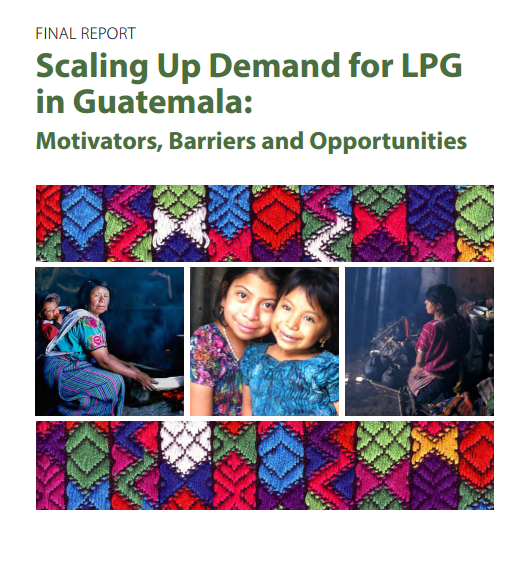Scaling Up Demand for Liquefied Petroleum Gas (LPG) in Guatemala

 In Guatemala, about 70% of urban households use Liquefied Petroleum Gas (LPG) for cooking. Yet over half of these users continue to cook with firewood—and households will only enjoy the health benefits of LPG when it is the primary fuel for cooking.
In Guatemala, about 70% of urban households use Liquefied Petroleum Gas (LPG) for cooking. Yet over half of these users continue to cook with firewood—and households will only enjoy the health benefits of LPG when it is the primary fuel for cooking.
A study from PHI’s Cleaner Cookstoves: Building Global Capacity & Improving Public Health and Eneris Consulting set out to understand the that key barriers to a complete transition to LPG for urban and peri-urban households. Their findings include: concerns about safety and the poor quality of LPG cylinders; the reputation of LPG suppliers and distributors; lack of knowledge of how to cook with LPG or how to use a pressure cooker; and lack of easy cost comparisons between LPG and firewood.
The report also found that LPG is currently used in households with a wide range of incomes, and most users are not deterred by taste of food cooked with LPG, technical access to LPG refills, or the initial cost of LPG cylinders and stoves are not barriers to increased LPG use.
These findings will be used to facilitate LPG scale-up among Guatemalan households with easy access to LPG. See the full study.
Work With Us
You change the world. We do the rest. Explore fiscal sponsorship at PHI.
Support Us
Together, we can accelerate our response to public health’s most critical issues.
Find Employment
Begin your career at the Public Health Institute.
